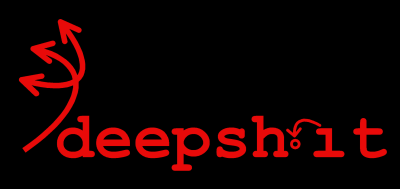Podcast: Crypto-Gram 15 September 2006: trying to make digital files uncopyable is like trying to make water not wet.
from the Sep 15, 2006 Crypto-Gram Newsletter
by Bruce Schneier
* What the Terrorists Want
The point of terrorism is to cause terror, sometimes to further a political goal and sometimes out of sheer hatred. The people terrorists kill are not the targets; they are collateral damage. And blowing up planes, trains, markets, or buses is not the goal; those are just tactics. The real targets of terrorism are the rest of us: the billions of us who are not killed but are terrorized because of the killing. The real point of terrorism is not the act itself, but our reaction to the act.
And we're doing exactly what the terrorists want.
* Details on the British Terrorist Arrest
Details are emerging:
- There was some serious cash flow from someone, presumably someone abroad.
- There was no imminent threat.
- However, the threat was real. And it seems pretty clear that it would have bypassed all existing airport security systems.
- The conspirators were radicalized by the war in Iraq.
- They were caught through police work, not through any broad surveillance, and were under surveillance for more than a year.
What pisses me off most is the second item. By arresting the conspirators early, the police squandered the chance to learn more about the network and arrest more of them
* Human/Bear Security Trade-Off
People are smart, but they're impatient and unwilling to spend a lot of time solving the problem. Bears are dumb, but they're tenacious and are willing to spend hours solving the problem. Given those two constraints, creating a trash can that can both work for people and not work for bears is not easy.
* Land Title Fraud
What happens is someone impersonates the homeowner, and then sells the house out from under him. The former owner is still liable for the mortgage, but can't get in his former house.
The problem is one of economic incentives. If banks were held liable for fraudulent mortgages, then the problem would go away really quickly. But as long as they're not, they have no incentive to ensure that this fraud doesn't occur
* Media Sanitization and Encryption
"Encryption is not a generally accepted means of sanitization. The increasing power of computers decreases the time needed to crack cipher text and therefore the inability to recover the encrypted data can not be assured."
I have to admit that this doesn't make any sense to me. If the encryption is done properly, and if the key is properly chosen, then erasing the key - and all copies - is equivalent to erasing the files. And if you're using full-disk encryption, then erasing the key is equivalent to sanitizing the drive. For that not to be true means that the encryption program isn't secure.
I think NIST is just confused.
* What is a Hacker?
A hacker is someone who thinks outside the box.
"Richard Feynman was a hacker; read any of his books.
I remember one conversation I had at a Crypto conference, early in my career. It was outside amongst the jumbo shrimp, chocolate-covered strawberries, and other delectables. A bunch of us were talking about some cryptographic system, including Brian Snow of the NSA. Someone described an unconventional attack, one that didn't follow the normal rules of cryptanalysis. I don't remember any of the details, but I remember my response after hearing the description of the attack.
"That's cheating," I said.
Because it was.
I also remember Brian turning to look at me. He didn't say anything, but his look conveyed everything. "There's no such thing as cheating in this business."
Because there isn't.
Hacking is cheating, and it's how we get better at security. It's only after someone invents a new attack that the rest of us can figure out how to defend against it.
* Microsoft and FairUse4WM
Security patches used to be rare. Software vendors were happy to pretend that vulnerabilities in their products were illusory - and then quietly fix the problem in the next software release.
That changed with the full disclosure movement. Independent security researchers started going public with the holes they found, making vulnerabilities impossible for vendors to ignore. Then worms became more common; patching - and patching quickly - became the norm.
Since 2003, Microsoft's strategy to balance these costs and benefits has been to batch patches: instead of issuing them one at a time, it's been issuing them all together on the second Tuesday of each month. This decreases Microsoft's development costs and increases the reliability of its patches.
In August, a hacker developed an application called FairUse4WM that strips the copy protection from Windows Media DRM 10 and 11 files.
Now, this isn't a "vulnerability" in the normal sense of the word.
But to Microsoft, this vulnerability is a big deal. It affects the company's relationship with major record labels. It affects the company's product offerings. It affects the company's bottom line. Fixing this "vulnerability" is in the company's best interest; never mind the customer.
So Microsoft wasted no time; it issued a patch three days after learning about the hack. There's no month-long wait for copyright holders who rely on Microsoft's DRM.
Certainly much less time than it will take Microsoft and the recording industry to realize they're playing a losing game, and that trying to make digital files uncopyable is like trying to make water not wet.
length: 34:49m
PS: this is my cheat sheet of Bruce Schneier's Podcast:
http://www.schneier.com/crypto-gram-0609.html
by Bruce Schneier
* What the Terrorists Want
The point of terrorism is to cause terror, sometimes to further a political goal and sometimes out of sheer hatred. The people terrorists kill are not the targets; they are collateral damage. And blowing up planes, trains, markets, or buses is not the goal; those are just tactics. The real targets of terrorism are the rest of us: the billions of us who are not killed but are terrorized because of the killing. The real point of terrorism is not the act itself, but our reaction to the act.
And we're doing exactly what the terrorists want.
* Details on the British Terrorist Arrest
Details are emerging:
- There was some serious cash flow from someone, presumably someone abroad.
- There was no imminent threat.
- However, the threat was real. And it seems pretty clear that it would have bypassed all existing airport security systems.
- The conspirators were radicalized by the war in Iraq.
- They were caught through police work, not through any broad surveillance, and were under surveillance for more than a year.
What pisses me off most is the second item. By arresting the conspirators early, the police squandered the chance to learn more about the network and arrest more of them
* Human/Bear Security Trade-Off
People are smart, but they're impatient and unwilling to spend a lot of time solving the problem. Bears are dumb, but they're tenacious and are willing to spend hours solving the problem. Given those two constraints, creating a trash can that can both work for people and not work for bears is not easy.
* Land Title Fraud
What happens is someone impersonates the homeowner, and then sells the house out from under him. The former owner is still liable for the mortgage, but can't get in his former house.
The problem is one of economic incentives. If banks were held liable for fraudulent mortgages, then the problem would go away really quickly. But as long as they're not, they have no incentive to ensure that this fraud doesn't occur
* Media Sanitization and Encryption
"Encryption is not a generally accepted means of sanitization. The increasing power of computers decreases the time needed to crack cipher text and therefore the inability to recover the encrypted data can not be assured."
I have to admit that this doesn't make any sense to me. If the encryption is done properly, and if the key is properly chosen, then erasing the key - and all copies - is equivalent to erasing the files. And if you're using full-disk encryption, then erasing the key is equivalent to sanitizing the drive. For that not to be true means that the encryption program isn't secure.
I think NIST is just confused.
* What is a Hacker?
A hacker is someone who thinks outside the box.
"Richard Feynman was a hacker; read any of his books.
I remember one conversation I had at a Crypto conference, early in my career. It was outside amongst the jumbo shrimp, chocolate-covered strawberries, and other delectables. A bunch of us were talking about some cryptographic system, including Brian Snow of the NSA. Someone described an unconventional attack, one that didn't follow the normal rules of cryptanalysis. I don't remember any of the details, but I remember my response after hearing the description of the attack.
"That's cheating," I said.
Because it was.
I also remember Brian turning to look at me. He didn't say anything, but his look conveyed everything. "There's no such thing as cheating in this business."
Because there isn't.
Hacking is cheating, and it's how we get better at security. It's only after someone invents a new attack that the rest of us can figure out how to defend against it.
* Microsoft and FairUse4WM
Security patches used to be rare. Software vendors were happy to pretend that vulnerabilities in their products were illusory - and then quietly fix the problem in the next software release.
That changed with the full disclosure movement. Independent security researchers started going public with the holes they found, making vulnerabilities impossible for vendors to ignore. Then worms became more common; patching - and patching quickly - became the norm.
Since 2003, Microsoft's strategy to balance these costs and benefits has been to batch patches: instead of issuing them one at a time, it's been issuing them all together on the second Tuesday of each month. This decreases Microsoft's development costs and increases the reliability of its patches.
In August, a hacker developed an application called FairUse4WM that strips the copy protection from Windows Media DRM 10 and 11 files.
Now, this isn't a "vulnerability" in the normal sense of the word.
But to Microsoft, this vulnerability is a big deal. It affects the company's relationship with major record labels. It affects the company's product offerings. It affects the company's bottom line. Fixing this "vulnerability" is in the company's best interest; never mind the customer.
So Microsoft wasted no time; it issued a patch three days after learning about the hack. There's no month-long wait for copyright holders who rely on Microsoft's DRM.
Certainly much less time than it will take Microsoft and the recording industry to realize they're playing a losing game, and that trying to make digital files uncopyable is like trying to make water not wet.
length: 34:49m
PS: this is my cheat sheet of Bruce Schneier's Podcast:
http://www.schneier.com/crypto-gram-0609.html



0 Comments:
Post a Comment
<< Home